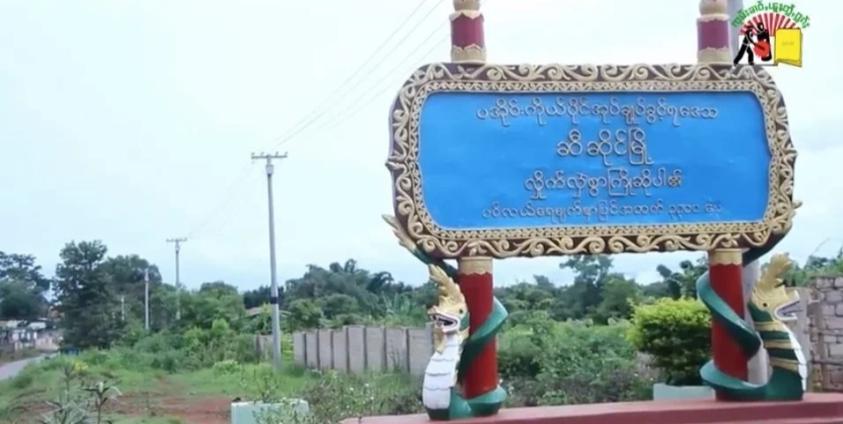The junta is having difficulties delivering enough water to the residents of junta-controlled Hsihseng Township in Shan State, due to budget and power shortages.
The situation has been particularly bad since the beginning of March 2025.
Water for Hsihseng Town is collected in the mountains and stored in natural reservoirs before being distributed to residents' homes.
Water is distributed through a network of pipes to low lying areas, but the town relies on a system of electric water pumps donated by Japan to deliver water to residents not living in low lying areas.
Currently, Hsihseng Town faces daily power outages lasting hours. This makes it very hard for the junta-run township development committee (the municipal department) to run the pumps long enough to provide sufficient water for the town. To make matters worse, it is also suffering from a budget shortfall, meaning that even if the electricity is available they cannot always afford it. This has led to water shortages in Hsihseng Town.
A resident of the town said: “When power outages happen too often, it's impossible to distribute water widely across the town's wards. Hsihseng has abundant natural water resources—scarcity isn't the issue. The problem is that the municipal department lacks the budget to distribute it effectively, and poor system management could also be a factor. Right now, water is piped to lower areas, but it can't be pumped to higher-elevation wards, so they don't receive water. On top of that, distribution isn't daily—it's inconsistent.”
Currently, the town’s municipal department has switched to using solar power to provide the electricity for pumping water, but that is insufficient to provide a full service. As a result water has to be supplied to different areas at different times, using a rota system.
Another Hsihseng Town resident said: “Even with solar power, only about 20,000 gallons can be pumped per day into 100,000-gallon water tanks, which isn’t enough to supply all wards continuously. Additionally, the solar water pumping system wasn’t installed by the municipal department, but by the regional administration authorities.”
Some Hsihseng Town residents struggling with municipal water shortages have had to resort to buying their water from private suppliers.
Yet another Hsihseng Town resident explained: “There’s a water delivery service in town where a tanker truck arrives at the doorstep with just a phone call. The cost is usually between 20,000 and 30,000 MMK for 150 gallons. But in this post-war period, some families are so poor that they can’t afford to buy water, making their situation extremely difficult. In some wards, public wells are available, and locals rely on them for bathing, washing clothes, and collecting water for daily use.”







